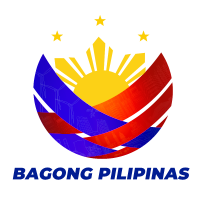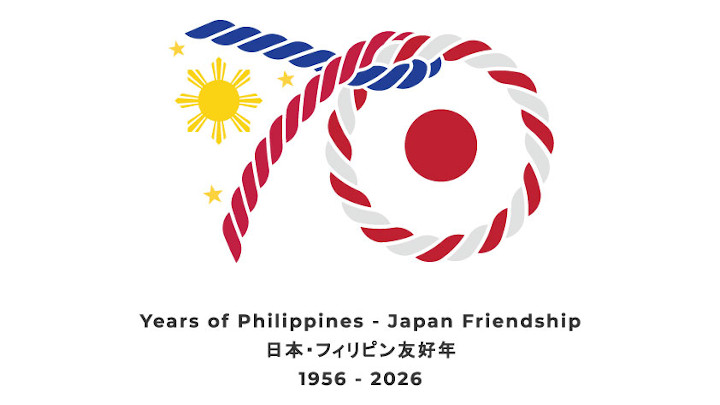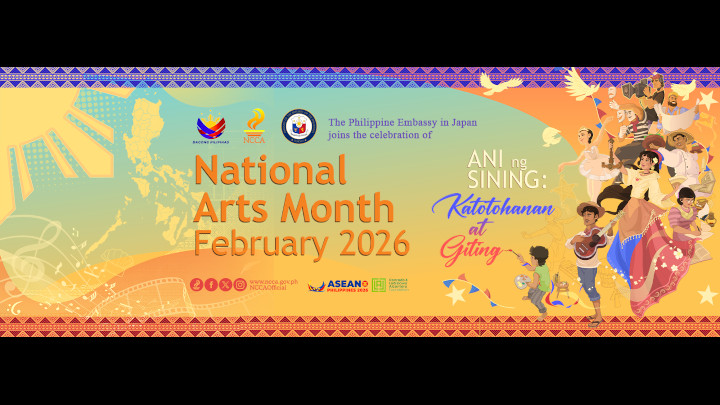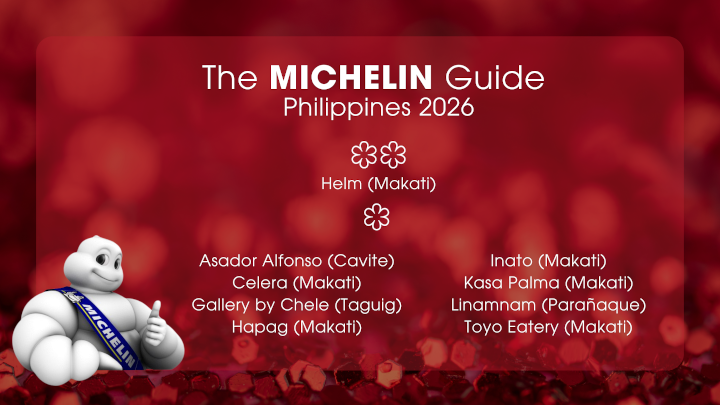Ambassador Laurel encourages women weavers and embroiderers to tap into AJC’s Women Entrepreneurs Linkage Program
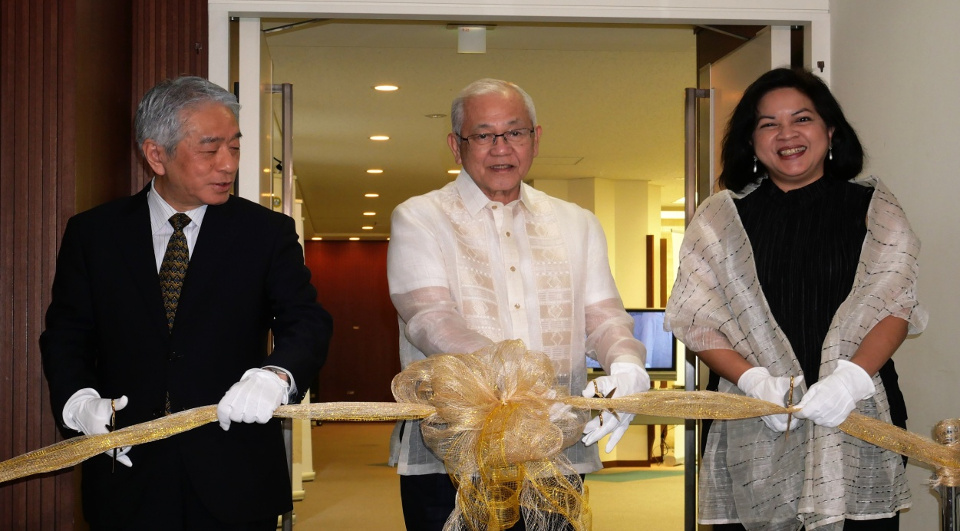
AJC Sec Gen Fujita, Amb. Laurel and Dr. Labrador cut the ribbon at the opening ceremony of the Hibla ng Lahing Filipino Travelling Exhibit at the Philippine Embassy in Tokyo.
TOKYO, 11 March 2019 –At the sidelines of the opening ceremony of the Hibla ng Lahing Filipino Travelling Exhibition Featuring the Pina-Seda: Pineapple and Silk Cloths from the Tropics, Ambassador Jose C. Laurel V and ASEAN-Japan Center (AJC) Secretary General Masataka Fujita encouraged Filipina weavers and embroiderers to tap into AJC’s Women Entrepreneurs Linkage Program, established to empower women entrepreneurs in the ASEAN region.
In his remarks at the opening ceremony, Ambassador Laurel welcomed the revival of the piña industry which has allowed piña weavers and embroiderers, many of them women, to practice their craft anew. He also expressed gratitude to the National Museum of the Philippines and Senator Loren Legarda for allowing the Philippine Embassy in Tokyo to share with its community the beauty of the piña cloth, the famous pineapple silk cloth, which is unique to the Philippines.
Senator Legarda, through her message read by National Museum Assistant Director Dr. Ana Maria Theresa P. Labrador, recalled that “Hibla ng Lahing Filipino” was born in 2012 with a vision to create a Philippine textile gallery that showcases the indigenous artistry of Filipinos through traditional textiles. In 2018, the exhibit was incorporated in the cultural and diplomacy program of Philippine foreign service posts, allowing the exhibit to travel through several countries. The Philippine Embassy in Tokyo is the first Philippine diplomatic post in Asia to house the exhibit.
Guests from the diplomatic corps were given a firsthand look of the piña-seda cloth collections of the National Museum, a foot loom or “Tanhaga,” and a collection of fibers from the Philippines. Piña-seda weavers Raquel R. Eliserio and Carlo R. Eliserio of Aklan and embroiderers Lolita J Pereza and Loreto D. Maestre, Jr. of Laguna assisted guests as they tried their hand at looming and embroidery.
The Philippine Embassy also invited members of the Filipino community, Japanese university students and Filipino students in Tokyo to weaving demonstrations and embroidery workshops, where they were given the opportunity to embroider a piece of piña cloth under the supervision of expert weavers.
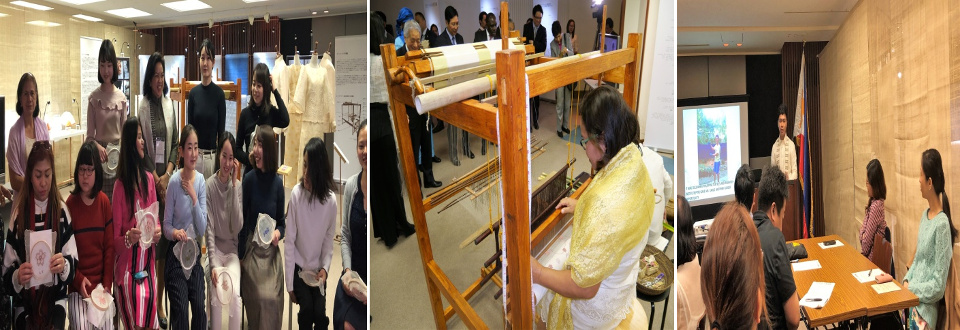
(Left to right): Japanese university students display their embroidered piña cloth; Members of the diplomatic corps watch a looming demonstration; Filipino students and members of the Filipino community listen to Carlo Eliserio as he shares his story.
The exhibit will be open for public viewing until 12 April 2019.
– END –

